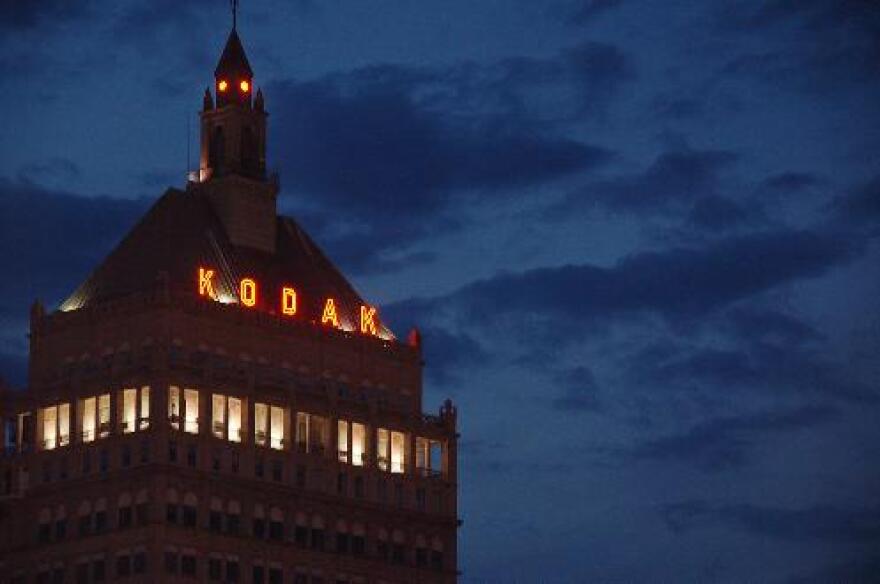The more than 130-year-old Eastman Kodak Co. is cautioning that there's "substantial doubt" about its ability to stay in business, saying it may have difficulty meeting upcoming debt obligations.
The photography company wrote in a regulatory filing it doesn't have committed financing or available liquidity to meet debt coming due within 12 months based on the current terms.
Shares of the photography company slid more than 13% in early trading Tuesday.
"Kodak has debt coming due within 12 months and does not have committed financing or available liquidity to meet such debt obligations if they were to become due in accordance with their current terms," the company wrote in a regulatory filing. "These conditions raise substantial doubt about Kodak's ability to continue as a going concern."
The Rochester-based company said that it had $155 million of cash and cash equivalents as of June 30, with $70 million held within the U.S.
“Financially, they're not in the best spot," said financial analyst Ethan Wade with Brighton Securities. But he added: "I don't know that it's as bad as it is being made seem right now with that money from the pension expected to be coming in for them. “
He’s talking about the $500 million Kodak expects to generate by handing off its pension responsibilities to outside insurance companies. Retiree benefits no longer will be tied to Kodak, whatever its fate. And the company plans to use a lot of the money it gets to pay down debts. Under accounting rules, though, this isn’t reportable as probable income.
So the company had to file that notice with federal regulators, which require the words "substantial doubt" be included as standard language.
Kodak Chief Financial Officer David Bullwinkle said in a statement on Monday that the company expects to know by Friday how it will satisfy its obligations to pay all pension plan participants and foresees completing the reversion by December.
"The equivalent is, you've got a couple and ... a spouse loses their job," Wade said. "And so your concern there is, we don't have the income coming in to be able to pay our mortgage. Well, coincidentally, at the same time, you happen to be coming into an inheritance, as well."
Still, that is a one-time boost. And Wade cautioned that, "from a business going forward, they still need to unlock some consistency to be able to be a viable business into the future." The company through the years has sold off a lot of its patents and other strong parts of the business to stay afloat, "and that's part of the reason that makes you not a consistent business now, or a challenged business now that we come back to it and have these big concerns," Wade said.
Company executives said in a call with investors this week that they are putting money into growth areas of the company "to build on its strong foundation."
Founded by George Eastman in 1880, Eastman Kodak Co. is credited with popularizing photography at the start of the 20th century and was known all over the world for its Brownie and Instamatic cameras and its yellow-and-red film boxes. It was first brought down by Japanese competition and then an inability to keep pace with the shift from film to digital technology.
Kodak filed for bankruptcy protection in 2012 after struggling with increasing competition, continuing growth in digital photography and growing debt. It emerged from bankruptcy roughly a year and a half later.
After the 2012 filing for bankruptcy protection, the company wound up selling off many of its businesses and patents, while shutting down the camera manufacturing unit that first made it famous. It received approval for its plan to emerge from court oversight a year later. At the time, Kodak was looking to recreate itself as a new, much smaller company focused on commercial and packaging printing.
Kodak is now nearing completion on a manufacturing plant to create regulated pharmaceutical products. The company already makes unregulated key starting materials for pharmaceuticals. Production at the retrofitted facility is expected to start later this year.
Includes reporting by WXXI investigations and enterprise editor Brian Sharp.



